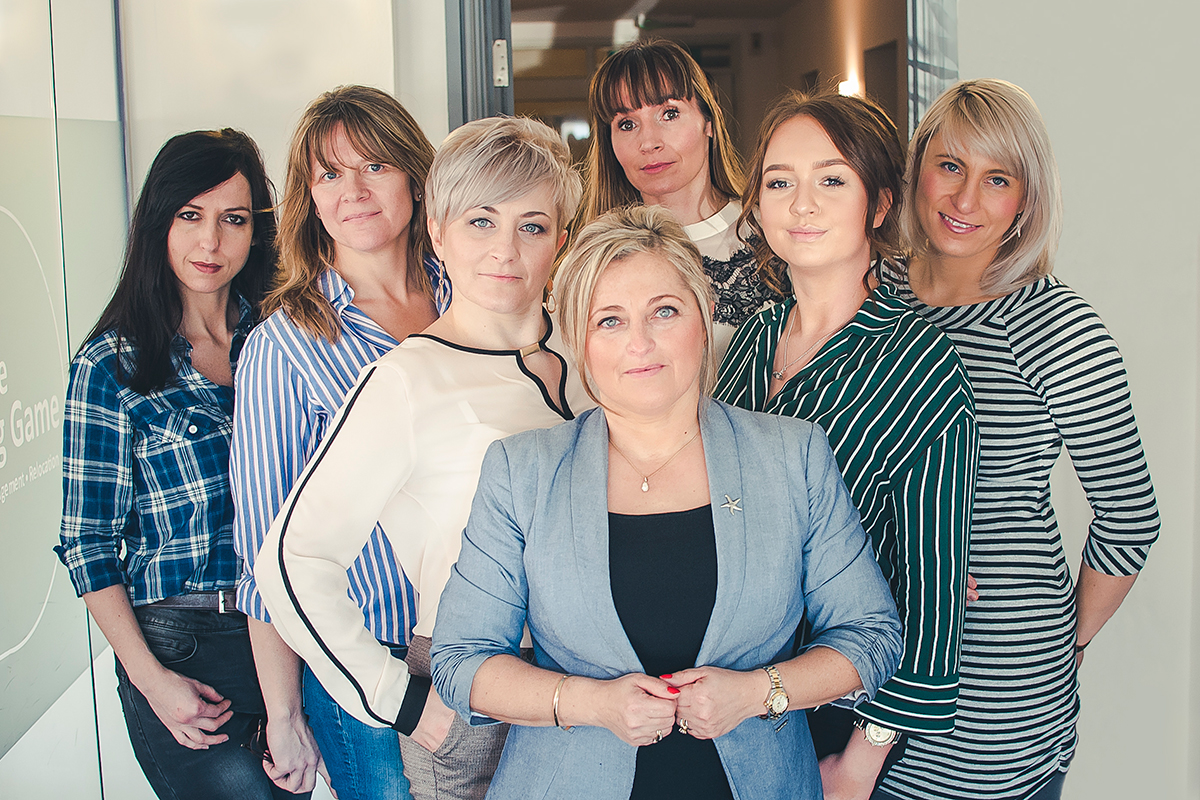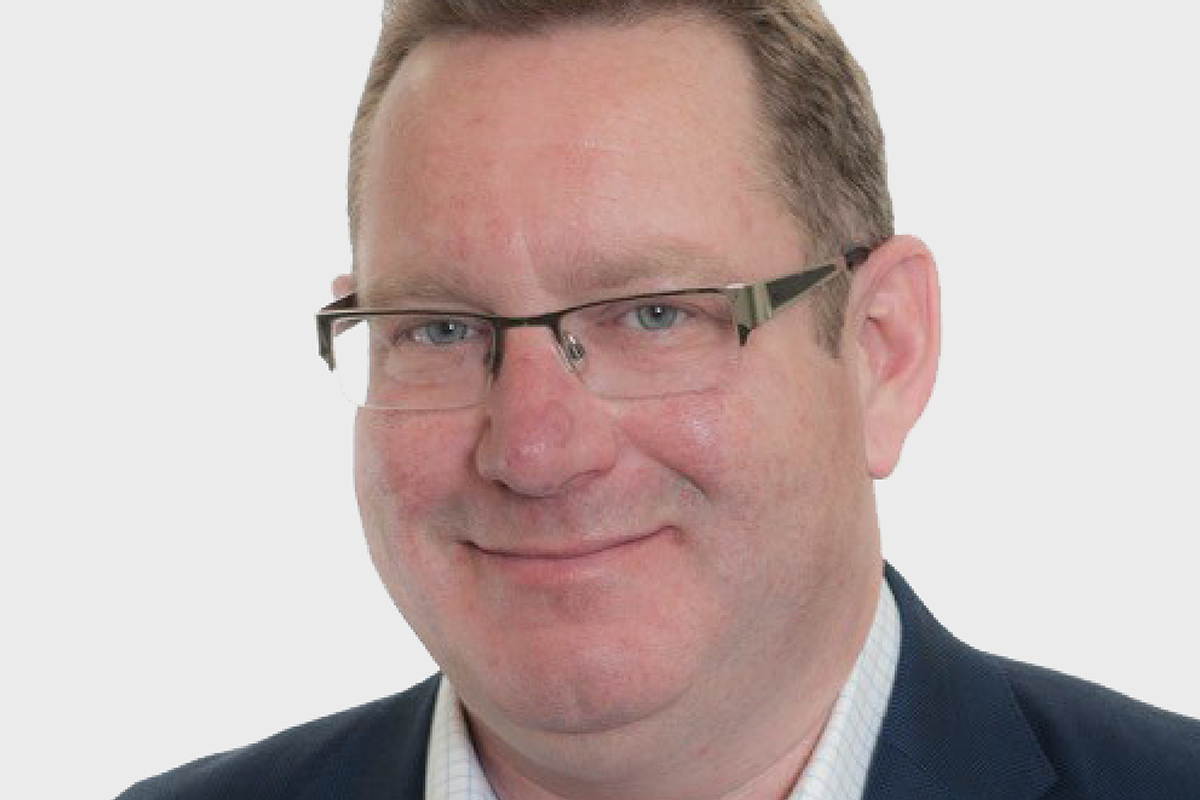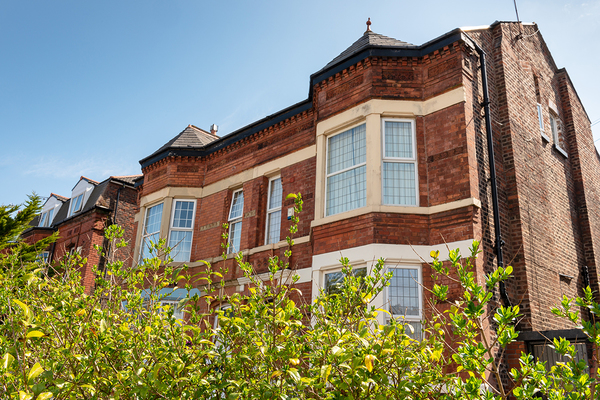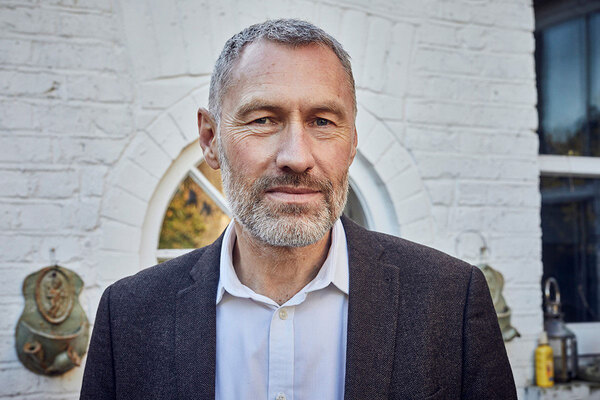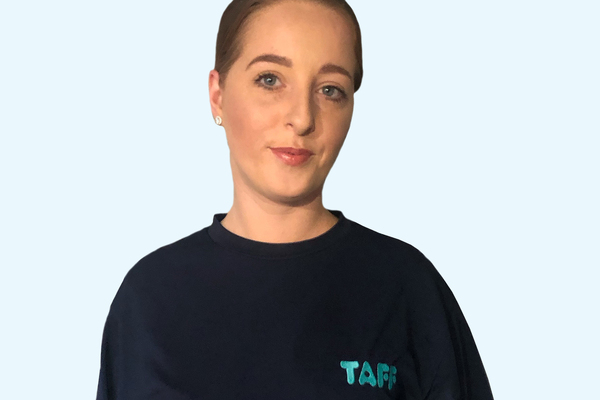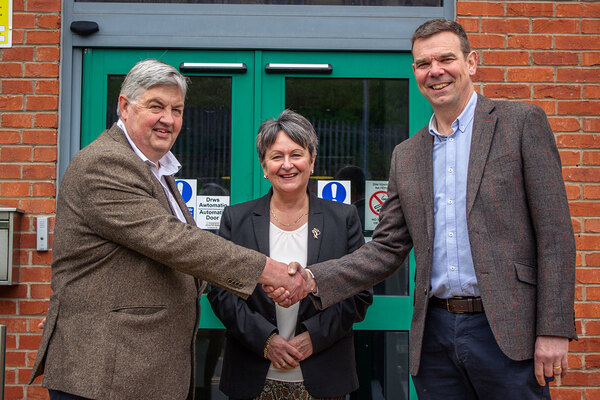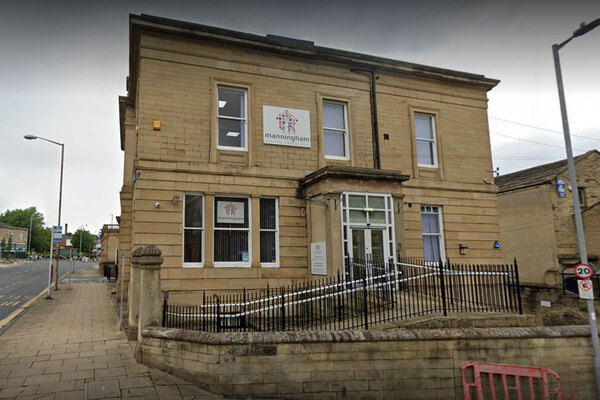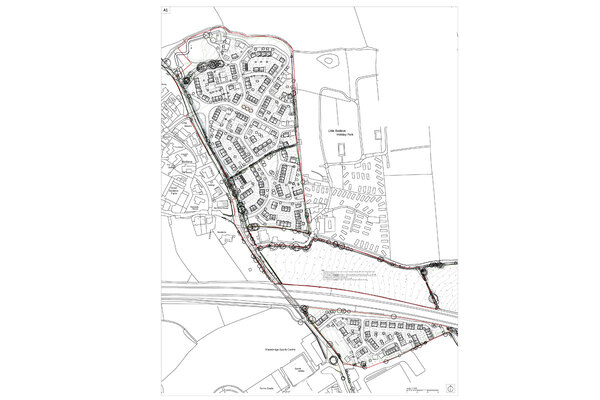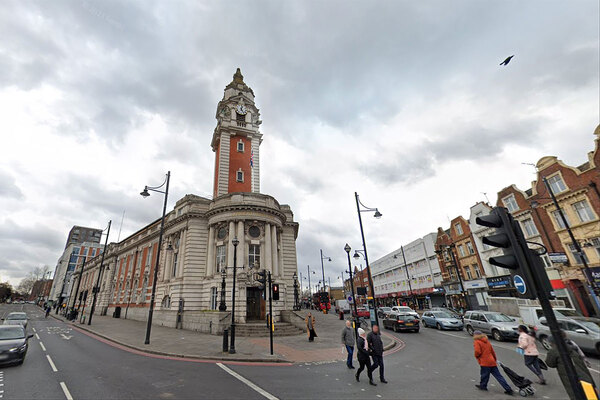Community action
How three organisations are being helped to improve the lives of different communities
The team behind Opoka
Article written in partnership with:

Opoka
Helping victims of domestic abuse
Women and children helped: 1,200
Outcome: building bridges across cultures for six years
The Civitas Community Prize seeks to support local community projects that would benefit from its £5,000 funding award.
The 2018 inaugural prize was awarded to Opoka, a charity that is part of Chrysalis Supported Association and aims to support Polish women and children in the UK who are victims of domestic abuse. These people often suffer in silence and isolation without knowing who to turn to.
Led by co-founder Aneta Maryla Mackell, Opoka is Bristol-based but has outreach sites in other locations, including South Gloucestershire, and works with professionals across the country.
Colin Mackell, managing director at Chrysalis, explains that Opoka grew out of a community outreach programme, but the isolation it came across in the Polish community led to a specialist support service being set up.
“Opoka very much sits side by side with Chrysalis and fits in with our values as an organisation. This is a very proactive and reactive service, which is staffed by highly trained staff and volunteers,” says Mr Mackell.
He explains that the women most at risk are those whose partners have arrived before them in the UK. The women arrive later and often don’t speak any English. As a result they are not culturally or socially integrated and can feel very isolated.
The charity is unique in the UK in being staffed by bilingual workers who are trained to offer both psychological and emotional support to the victims of domestic abuse. It also offers peer support, as well as help in navigating the legal system. The £5,000 Civitas Community Prize will help Opoka towards its next goal of opening a refuge.
Alongside the support offered to the women affected, Opoka takes a holistic approach by also running a programme of education within the Polish community, highlighting specific cultural problems as well as addressing misogynistic attitudes towards women.
As well as this, it has now started offering support to the perpetrators of domestic violence. “We truly believe that domestic violence is about human suffering, which is why we are now also engaging with the abusers,” says Mr Mackell.
“The impact domestic violence has had on Polish women in the UK is that they feel they don’t have equal status, and have had their confidence completely eroded,” he adds. “It’s really about empowering women. That’s what Opoka is about.”
The charity is now in its seventh year and the intention is to get “stronger and reach as many as possible”, says Mr Mackell. “We eventually see this as being a national service.”
Harbour Light’s Victorian property stock
Harbour Light
Transforming lives in the North West
Homes managed: 41
Outcome: partnership with a social conscience
Harbour Light is a Liverpool-based housing association, which specialises in bespoke accommodation for adults with learning difficulties and autism spectrum disorder. One recent case study sums up everything the organisation stands for.
It is the story of four such vulnerable adults, who lived together for 20 years but were forced apart when one became unable to live in their old accommodation. Harbour Light was approached by the local authority in Liverpool to specially fit out a four-bedroom bungalow – when ready it will reunite the quartet.
To Mark Adams, director of Harbour Light, the tale merely highlights his group’s mantra. “We are very people-focused,” he says.
Mr Adams adds: “We don’t have a ‘vanilla’ set-up. Our properties are not magnolia and white – we don’t have a standard furniture pack. Homes are adapted accordingly with a myriad of features dependent on need, such as wet rooms, sensory rooms, touch button switches, robust fittings and curtains on Velcro. Homes are done to a standard that we ourselves would want to live in.”
Set up four years ago, Harbour Light is a not-for-profit group, which currently has 250 bed spaces, spread across 41 properties ranging from small one-bedroom, self-contained houses to large Victorian properties, as well as a 24-unit site.
A specially adapted kitchen in one of Harbour Light’s properties
In August last year Civitas bought 26 properties with 182 tenancies for £17.8m; each property has a 25-year lease with Harbour Light. The organisation is one of 15 housing associations to partner with Civitas.
“One of the big driving forces behind Civitas is their longevity – they are not looking to sell the homes on again quickly, which was a big fear for us when the portfolio was going to be sold. The fact that we have a quasi-institutional landlord with a social conscience, and transparency puts us at ease,” says Mr Adams, who adds that he expects Harbour Light to grow by an average of 25 beds a year.
Any expansion will be in the North West. Mr Adams says: “Since the Civitas transaction went through we have been targeted a lot by all sorts of investors, property portfolios, other care businesses nationwide – but I only want to offer provision in the North West, as does our board: we are all from here.
“We don’t want to do anything outside of our area. We are set up as a community interest company, our community being Merseyside and the surrounding areas.”
Inmind
A shared approach
Homes managed: 40 sites
Outcome: an innovative and forward-thinking care partnership
“I’m a nurse first and foremost: that’s why I trained, and that’s why I came into this work,” states Reuben Evans.
Mr Evans is hospital director at Battersea Bridge House, London, one of 10 nationwide sites in the Inmind Healthcare Group – the independent care provider for people aged over 18 with complex mental health needs, personality disorders and physical health requirements.
And from his enduring dedication to being a nurse, his passion for what Inmind does is clear.
“We get to see somebody’s progress. People come in who may be struggling in some way, whether that be in how to relate to others, or to maintain a sense of hope for the future. Eventually they move on and leave the service – ideally to live independently in the community or live in a supported environment. That is what we are about.”
Inmind is based in the Midlands, London, and Yorkshire and the Humber, and has worked in partnership with the NHS since 2002. It takes NHS referrals from clinical commissioning groups or directly from NHS England.
The organisation is one of Civitas’ care provider partners. They first began working together following a £121m deal in December 2017, where Civitas purchased 61 properties with specialist accommodation for 427 people. Inmind now provides care support to many of these individuals.
Mr Evans describes Civitas as “the provider of the physical environment, while we manage and maintain that environment to deliver the services to people. There’s that partnership element”.
The direction of government policy is pushing for greater integration in design and delivery of health and social care. In Mr Evans’ view, Inmind and Civitas really “fit that model”.
He adds: “You have two organisations coming together who bring the health and social care together with them from different, but complementary perspectives.”
